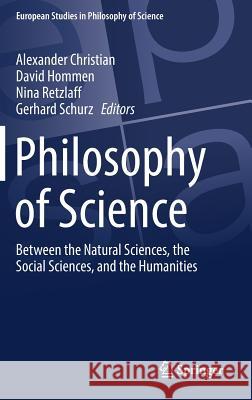Philosophy of Science: Between the Natural Sciences, the Social Sciences, and the Humanities » książka
topmenu
Philosophy of Science: Between the Natural Sciences, the Social Sciences, and the Humanities
ISBN-13: 9783319725765 / Angielski / Twarda / 2018 / 274 str.
Philosophy of Science: Between the Natural Sciences, the Social Sciences, and the Humanities
ISBN-13: 9783319725765 / Angielski / Twarda / 2018 / 274 str.
cena 564,88
(netto: 537,98 VAT: 5%)
Najniższa cena z 30 dni: 539,74
(netto: 537,98 VAT: 5%)
Najniższa cena z 30 dni: 539,74
Termin realizacji zamówienia:
ok. 22 dni roboczych
Bez gwarancji dostawy przed świętami
ok. 22 dni roboczych
Bez gwarancji dostawy przed świętami
Darmowa dostawa!
Kategorie BISAC:
Wydawca:
Springer
Seria wydawnicza:
Język:
Angielski
ISBN-13:
9783319725765
Rok wydania:
2018
Wydanie:
2018
Numer serii:
000782600
Ilość stron:
274
Waga:
0.59 kg
Wymiary:
23.39 x 15.6 x 1.75
Oprawa:
Twarda
Wolumenów:
01
Dodatkowe informacje:
Wydanie ilustrowane











